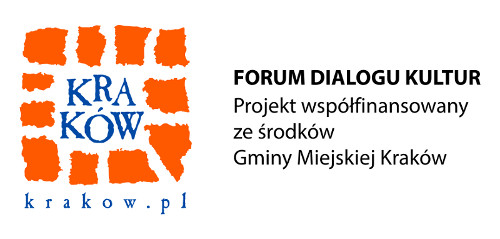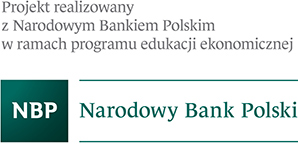
A ceremonial inauguration of the 14th edition of the Visegrad Summer School ‒ one of the most recognisable series of training courses for young people from the Visegrad Group and East-Central European countries in this part of Europe carried out by the Villa Decius Association since 2002 ‒ will take place at Villa Decius on the 6th of July.
The inaugural lecture entitled “Ukraine, Greece and the European Crisis” will be delivered by Professor Timothy Garton Ash ‒ eminent British historian specialising in the post-1945 history of Europe.
Traditionally, a debate will also be held with the participation of V4 diplomats and a representative of the Ministry of Foreign Affairs of the Republic of Poland – this time the discussion will be devoted to the challenges of the Visegrad cooperation. Participants include Rafał Trzaskowski ‒ the Secretary of State in the Ministry of Foreign Affairs, His Excellency Jakub Karfík ‒ the Ambassador of the Czech Republic in Poland, Adrienne Körmendy ‒ Consul-General of Hungary in Krakow, and Pavol Popjak ‒ the 1st Secretary of the Embassy of the Slovak Republic. The debate will be hosted by Krzysztof Bobiński.
The special event during the 14th Visegrad Summer School will be a lecture entitled “How to bridge the gap between European citizens and institutions?” delivered by Professor Jonathan Holslag ‒ lecturer at Université Libre de Bruxelles, member of the Rockefeller Trilateral Commission and the Noble Institute. The event is organised in cooperation with the Evens Foundation as part of an international project called the “Cycle of Conferences”. Admission is free.
The programme of the Visegrad Summer School includes the current socio-political issues of East-Central Europe such as security, economics, and economic cooperation. The thematic block devoted to culture will include a reflection on Central-European identity (Michal Vašečka) and post-imperialist nostalgia (Ziemowit Szczerek).
Some of the debates, lectures and meetings will be open to the general public. On the 15th of July, at 3:00 p.m., we would like to invite everyone to a special screening of a documentary entitled Solidarność według kobiet (Solidarity According to Women) directed by Marta Dzido and Piotr Śliwowski and to a discussion devoted to critical reception of the heritage of solidarity.
The experts of this year’s edition of the Visegrad Summer School will include: Andrei Pleșu, Attila Z. Papp, Martin Ehl, Wiesław Gumuła, Dana Pekaríková, Helge Lunde, Jana Smiggels Kavková, Kai-Olaf Lang, László Rajk, Magdalena Vášáryová, Marta Dzido, Wojciech Przybylski, and Taras Woźniak.
This year, applications for the Visegrad Summer School were submitted by 485 students, PhD students, young teachers and journalists from 44 countries: Algeria (1 application), Armenia (43 applications), Austria (4 applications), Azerbaijan (51 applications), Bangladesh (1 application), Belarus (12 applications), Belgium (1 application), Bosnia and Herzegovina (3 applications), Bulgaria (30 applications), Croatia (11 applications), Czech Republic (53 applications), Denmark (3 applications), Egypt (2 applications), Finland (3 applications), France (4 applications), Georgia (31 applications), Germany (4 applications), Ghana (1 application), Greece (1 application), Hungary (52 applications), Indonesia (1 application), Italy (1 application), Kazakhstan (22 applications), Kosovo (19 applications), Kyrgyzstan (14 applications), Lithuania (3 applications), Macedonia (19 applications), Moldavia (16 applications), Netherlands (1 application), Norway (5 applications), Pakistan (1 application), Poland (68 applications), Romania (17 applications), Russia (30 applications), Serbia and Montenegro (26 applications), Slovakia (48 applications), Slovenia (2 applications), Sweden (1 application), Switzerland (1 application), Turkey (1 application), Ukraine (163 applications), United Arab Emirates (1 application), United Kingdom (7 applications), United States of America (3 applications). An average of 10 candidates applied for a single place.
The 14th edition of the project will include 50 participants from 12 countries: Czech Republic, Slovakia, Poland, and Hungary, as well as Azerbaijan, Croatia, Georgia, Macedonia, Moldavia, Russia, Slovenia, Ukraine, and Egypt. They are students of international relations (14 participants), European studies (8 participants), sociology (5 participants), finance and economics (5 participants), history (4 participants), law (3 participants), agricultural economics (1 participant), Earth science (1 participant), film studies (1 participant), journalism (1 participant), linguistics (1 participant), physics (1 participant), philosophy (1 participant), public administration (1 participant), cultural management (1 participant).
The Visegrad Summer School is a two-week long series of training courses for young people from the Visegrad Group and Eastern European countries carried out by the Villa Decius Association annually since 2002. The aim of the project is to broaden the knowledge on the regional and global challenges, eliminate mutual stereotypes, and create bonds and friendly relations. The International Visegrad Fund, as well as the City of Krakow and the Malopolska Region have been the strategic sponsors of the programme from the very beginning.
The Visegrad Summer School co-creates the Platform for Advanced Studies ‒ a project co-financed by the National Bank of Poland. The main objective of the project is to develop a platform for advanced studies as an alternative to regular studies, aimed at broadening knowledge on culture and economics, including the role and mission of the National Bank of Poland, the national and European financial policy, and shaping attitudes supporting international cooperation and the development of entrepreneurship.
Financing:
Sponosrzy/Sponsors:







